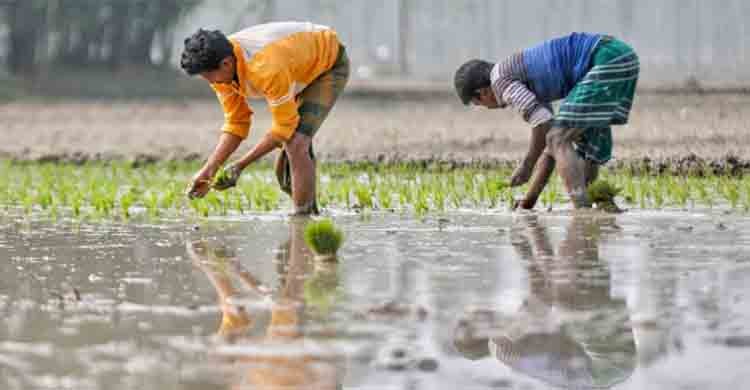Govt proposes TK 24,224 cr for agriculture in FY23
09 June 2022, 07:27 pm | Updated: 24 February 2025, 04:53 pm

The government has earmarked Taka 24,224 crore for the agricultural sector for the next 2022-23 fiscal year as the proposed agriculture budget outlay is 3.6 percent of the total proposed budget outlay.
For the agriculture sector, the proposed budget is Taka 8,027 crore more compare to the last year budgetary allocation and Taka 5,285 crore than the revised budget outlay of 2021-22 fiscal, reports BSS.
While placing proposed budget at the Jatiya Sangsad here on Thursday, Finance Minister AHM Mustafa Kamal said "Despite the crisis arising from the COVID-19 pandemic, we had been able to keep the production of agriculture uninterrupted in the country and achieve food and nutrition security thanks to the very timely directives from the Prime Minister."
In the coming fiscal year, we will execute actions such as development assistance (subsidies) to keep agricultural input prices with fertilizer and seeds as low as possible at the farmer level, making available agricultural machinery to the farmers in order to mechanise agriculture, extend
'Synchronised Cultivation' and collaborate in the production, storage and marketing of a variety of vegetables and fruits, including summer onions and tomatoes.
Moreover, we have taken up a project at a cost of Taka 3,020 crore titled ''Mechanization of Agriculture Work through Integrated Management' which has targeted to distribute 51,300 units of agro- machinery of 12 categories between 2020-2025.
In FY2022-2023, in line with the National Agriculture Policy 2018, Agricultural Extension Policy 2020 and 8th Five Year Plan, we have worked out an action plan. The main aspects of our action plan are to ensure country's food security through increased production of all types of crops including paddy and maize; innovate adverse environment-tolerant crop variety and
technology and to roll it out quickly, develop and enhance the quality of their seeds using biotechnology, ensure optimum use of surface water and solar- powered irrigation, promote the production and application of organic fertilizers to safeguard soil health, issue smart cards to all farmers; to predict weather through climate-smart agriculture and bolster e-agriculture
activities.






















